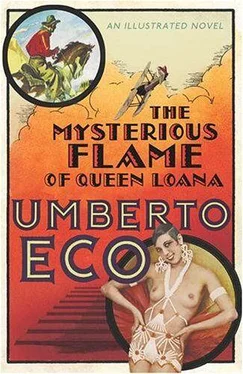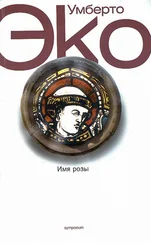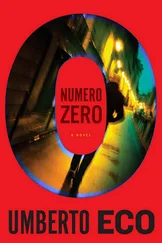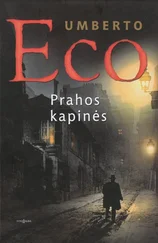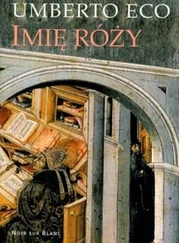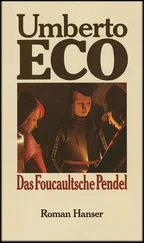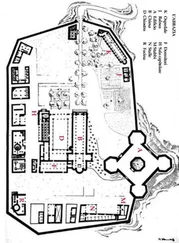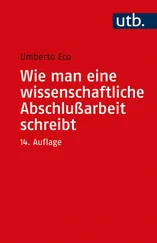Umberto Eco - The Mysterious Flame Of Queen Loana
Здесь есть возможность читать онлайн «Umberto Eco - The Mysterious Flame Of Queen Loana» весь текст электронной книги совершенно бесплатно (целиком полную версию без сокращений). В некоторых случаях можно слушать аудио, скачать через торрент в формате fb2 и присутствует краткое содержание. Жанр: Исторический детектив, на французском языке. Описание произведения, (предисловие) а так же отзывы посетителей доступны на портале библиотеки ЛибКат.
- Название:The Mysterious Flame Of Queen Loana
- Автор:
- Жанр:
- Год:неизвестен
- ISBN:нет данных
- Рейтинг книги:3 / 5. Голосов: 1
-
Избранное:Добавить в избранное
- Отзывы:
-
Ваша оценка:
- 60
- 1
- 2
- 3
- 4
- 5
The Mysterious Flame Of Queen Loana: краткое содержание, описание и аннотация
Предлагаем к чтению аннотацию, описание, краткое содержание или предисловие (зависит от того, что написал сам автор книги «The Mysterious Flame Of Queen Loana»). Если вы не нашли необходимую информацию о книге — напишите в комментариях, мы постараемся отыскать её.
The Mysterious Flame Of Queen Loana — читать онлайн бесплатно полную книгу (весь текст) целиком
Ниже представлен текст книги, разбитый по страницам. Система сохранения места последней прочитанной страницы, позволяет с удобством читать онлайн бесплатно книгу «The Mysterious Flame Of Queen Loana», без необходимости каждый раз заново искать на чём Вы остановились. Поставьте закладку, и сможете в любой момент перейти на страницу, на которой закончили чтение.
Интервал:
Закладка:
I went down to Largo Cairoli and the flower stall was closed. I meandered down Via Dante toward the Cordusio, then turned right toward the Borsa and saw the place where all the collectors in Milan gather on Sundays. Philatelic stalls along Via Cordusio, figurines and old postcards along all of Via Armorari, and the entire T of the Passaggio Centrale filled with vendors selling coins, toy soldiers, holy cards, wristwatches, even telephone cards. Collecting is anal-I should know. People collect all kinds of things, even Coca-Cola bottle caps, and after all, telephone cards are cheaper than my incunabula. In Piazza Edison, stalls to my left were selling books, newspapers, and advertising posters, while in front of me yet others were selling miscellaneous junk: art nouveau lamps, no doubt fake; flowered trays with black backgrounds; bisque ballerinas.
In one stall I found four cylindrical containers, sealed, filled with an aqueous solution (formalin?) in which were suspended various ivory-colored forms-some round, some shaped like beans-linked together by snow-white filaments. Marine creatures-sea cucumbers, shreds of squid, faded coral-or perhaps the morbid figments of some artist’s teratological imagination. Yves Tanguy?
The vendor explained to me that they were testicles: dog, cat, rooster, and some other beast, complete with kidneys and the rest. "Take a look, it’s all from a scientific laboratory from the nineteenth century. Forty thousand apiece. The containers alone are worth twice that, this stuff is at least a hundred and fifty years old. Four times four is sixteen, I’ll give you all four for a hundred and twenty. A bargain."
Those testicles fascinated me. For once, here was something I was not supposed to know about through my semantic memory, nor did it have anything to do with my personal history. Who has ever seen dog testicles in their pure state-I mean, without the dog attached? I rummaged around in my pockets. I had a total of forty thousand, and it’s not as though a street vendor is going to take a check.
"I’ll take the dog ones."
"A mistake to leave the others, you won’t get that chance again."
You cannot have everything. I went back home with my dog balls and Paola blanched: "They’re curious, they really do look like a work of art, but where will we keep them? In the living room, so that every time you offer guests some cashews or some Ascoli olives they can vomit on our carpet? In the bedroom? I think not. You can keep them in your studio, perhaps next to some lovely seventeenth-century book on the natural sciences."
"I thought it was a real find."
"Do you know you’re the only man in the world, the only man on the face of the earth from Adam up to now, who when his wife sends him out to buy roses comes home with a pair of dog balls?"
"If nothing else, that’s something for the Guinness book of records. And besides, you know, I’m a sick man."
"Excuses. You were crazy even before. It was no accident that you asked your sister for a platypus. Once you wanted to bring home a 1960s pinball machine that cost as much as a Matisse painting and made a hellish racket."
But Paola knew that street market already. Indeed, she said I should have known it too: once I found a first edition of Papini’s Gog there, original covers, uncut, for ten thousand lire. And so the next Sunday she wanted to go with me: you never know, she said, you might come home with some dinosaur testicles and we’ll have to call a mason to widen the doorway to get them inside.
Stamps and telephone cards did not arouse my interest, but the old newspapers did. Stuff from our childhood, Paola said. "Then forget it," I said. But at a certain point I saw a Mickey Mouse comic book. I picked it up instinctively. It could not have been really old-a 1970s reprint, judging from the back cover and the price. I opened it to the middle: "It’s not an original, because those were printed in two colors, with shading from brick red to brown, and this one is printed in white and blue."
"How do you know that?"
"I don’t know, I just do."
"But the cover is a reproduction of the original cover. Look at the date and the price: 1936; one and a half lire."
Clarabelle’s Treasure: the title jumped out from a colorful background. "And they got the wrong tree," I said. "What do you mean?" I flipped quickly through the pages and immediately found the right panels. But it was as if I did not feel like reading what was written in the balloons-as if it were written in some other language or the letters had all been smeared together. Instead I told the story from memory.
"You see, Mickey Mouse and Horace Horsecollar, taking an old map, went in search of a treasure that had been buried by Clarabelle Cow’s grandfather or great-uncle, and they’re racing against the slimy Eli Squinch and the treacherous Peg-Leg Pete. They come to the place and consult the map. They’re supposed to start from a big tree, make a line to a smaller tree, then triangulate. They dig and dig but find nothing. Until Mickey has a flash of inspiration: the map is from 1863, more than seventy years have passed, this little tree couldn’t possibly have existed at that time, so the tree that now appears big must have been the little one then, and the big one must have fallen, but may have left traces. And indeed they look and look, find a piece of the old trunk, redo the triangulation, start digging again, and there it is, exactly in that spot, the treasure."

"But how do you know all that?"
"Doesn’t everyone?"
"No, everyone does not," said Paola, excited. "That isn’t semantic memory, that’s autobiographical memory. You’re remembering something that made an impression on you as a child! And this cover sparked it."
"No, not the image. If anything the name, Clarabelle." " Rosebud. "
Of course we bought the comic book. I spent the evening with that story but got nothing more from it. I knew it, and it was all there, but no mysterious flame.
"I’ll never come out of this, Paola. I’ll never enter the cavern."
"But you suddenly remembered that business about the two trees."
"Proust at least remembered three. Paper, paper, like all the books in this apartment, or those in my studio. My memory is made of paper."
"Use the paper, then, since madeleines don’t tell you anything. So you’re not Proust, fine. Zasetsky wasn’t either."
" What name , fair lady? "
"I had almost forgotten about him; Gratarolo reminded me. In my line of work I couldn’t have helped reading The Man with a Shattered World , a classic case. But I read it a long time ago, and for academic reasons. Today I reread it with a personal interest, it’s a delicious little book you can skim in a couple of hours. In it, Luria, the great Russian psychologist, presents the case of this man Zasetsky, who during the last world war was hit with a piece of shrapnel that damaged the left occipitoparietal region of his brain. He wakes up, as you did, but in a terrible chaos. He isn’t even able to discern the position of his body in space. He sometimes thinks certain of his body parts have changed- that his head has become inordinately large, that his torso is incredibly small, that his legs have moved onto his head."
"That doesn’t seem much like my case. Legs on his head? And his penis in place of his nose?"
"Hang on. Never mind about the legs on the head, that happened only occasionally. The worst thing was his memory. Reduced to shreds, as if it had been pulverized-much worse than yours. Like you, he couldn’t remember where he was born or the name of his mother-but he could no longer even read or write. Luria begins observing him. Zasetsky has an iron will and relearns how to read and write, and he writes and writes. For twenty-five years he records not only everything he disinters from the devastated caverns of his memory but also everything that happens to him day by day. It was as if his hand, with its automatisms, was able to put in order what his head couldn’t. Which is like saying that what he wrote was more intelligent than he was. And thus, on paper, he gradually rediscovered himself. You’re not him, but what struck me is that he reconstructed for himself a memory made of paper. And it took him twenty-five years. You already have plenty of paper here, but evidently it isn’t the right paper. Your cavern is in the country house. I’ve given it a lot of thought in recent days, you know. All the papers of your childhood and your adolescence-you locked them away too abruptly. Maybe something there will hit home for you. So now, please do me the great favor of going to Solara. Alone, because for one thing I can’t get away from work, and for another this is something, as I see it, that you have do by yourself. Just you and your distant past. Stay as long as you need to and see what happens. You’ll lose a week at most, maybe two, and you’ll get some good air, which won’t hurt a bit. I’ve already phoned Amalia."
Читать дальшеИнтервал:
Закладка:
Похожие книги на «The Mysterious Flame Of Queen Loana»
Представляем Вашему вниманию похожие книги на «The Mysterious Flame Of Queen Loana» списком для выбора. Мы отобрали схожую по названию и смыслу литературу в надежде предоставить читателям больше вариантов отыскать новые, интересные, ещё непрочитанные произведения.
Обсуждение, отзывы о книге «The Mysterious Flame Of Queen Loana» и просто собственные мнения читателей. Оставьте ваши комментарии, напишите, что Вы думаете о произведении, его смысле или главных героях. Укажите что конкретно понравилось, а что нет, и почему Вы так считаете.
